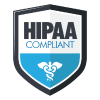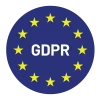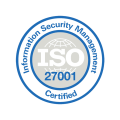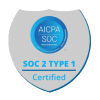
Secure Your Data, Secure Your Health
By Chris Turner
Did you know that over 40 million American medical records were exposed or stolen in 2022? This staggering statistic is partly due to weaknesses in electronic health systems. However, this issue is not unique to last year; it’s been a steadily worsening problem. Between 2010 and 2014, nearly 50 million people had their medical data stolen or exposed. In the five years following that, that number has quadrupled.
In this blog, let’s explore why these breaches happen, the financial impact they can have on providers and patients, and how Healthbook+ can help protect your medical data and give you peace of mind.Why do hackers target healthcare data?
Healthcare records are incredibly valuable because hackers can use them in a variety of ways to commit crimes. Healthcare records often contain sensitive information, including social security numbers, birth dates, and other demographic information, which can all be used to commit identity theft and obtain loans or credit cards, for example. Healthcare data can also be used to impersonate victims to access expensive medical services, collect Medicare/Medicaid benefits, get prescription medications, and more. These data breaches are not just harmful to victims but also expensive. Compromised patient records can send financial and reputational costs soaring. For example, IBM reports that the financial damages resulting from data breaches have reached a 12-year high, with the average healthcare data breach costing $10.1 million.How do healthcare data breaches happen?
While technology has proven invaluable to the healthcare industry, it has also left medical records vulnerable. As healthcare providers moved away from analog records and focused on the more innovative use of digital technology, they often failed to protect their legacy systems properly. Nearly half of the data breaches are caused by employees who have access to this sensitive data, sometimes through hacking the system, but often times accidentally (lost computer, accidental disclosure).Healthcare organizations make an easy target
The IT systems of healthcare organizations are usually very complex and hard to secure. As a result, it’s not uncommon for healthcare systems to continue to utilize legacy systems far past their efficacy date. Because upgrading can be time-consuming and expensive, healthcare organizations continue to use legacy devices and software that are sometimes out-of-date and vulnerable to security breaches. The variety of connected devices used also poses a risk, IBM’s research suggests that an average of 10-15 medical devices are used per hospital bed. The integration of internet-connected devices (like pacemakers, drug infusion pumps, or insulin pumps) poses significant cybersecurity risks, especially since many of these medical devices have outdated or insecure software, hardware, and protocols—making them more vulnerable to cyberattacks. It is also challenging to keep track of all the devices in use and ensure they are secure. Healthcare professionals need easy access to patient data, which is the primary purpose of digitizing medical records. Healthcare team members often work from different locations, which requires remote access. Busy working environments, overstretched staff, and a lack of regular security training make the healthcare industry particularly susceptible to phishing attacks. A recent study of 850 healthcare employees saw 72% of employees rated as a security risk, with only 28% demonstrating the ability to recognize and avoid phishing attacks.How HealthBook+ secures your healthcare data
At HealthBook+, privacy is the priority. The HealthBook+ team understands the balance needed to make electronic health records easily accessible to both healthcare providers and patients. When people—not medical facilities—own their health data, and their care providers have easy access to that data when needed, health ownership happens. Health ownership means active participation in the healthcare journey and engaging in activities that drive better health. Additionally, it’s not enough to simply facilitate easy access; it’s crucial that the health data is secure. HealthBook+ meets this need of accessibility, ownership, and security. The HealthBook+ early identification and guided health platform facilitate access to immediate support with personalized health solutions based on patient needs. With HealthBook+, quality of care is enhanced, as are streamlined services, eliminating redundancy and easily—and securely—sharing vital health data. The HealthBook+ platform’s security features include:- Hosting on Amazon Web Services
- SOC II Type 1
- HIPAA compliance
- 2FA authentication
- End-to-end data encryption





